Wednesday, September 03, 2014
Calvary
A Guardian review quoted on the DVD cover blurb breathlessly labels John Michael McDonagh’s ‘Calvary’ a “rich, ripe and altogether delicious whodunit with a difference”. Which is, to varying degrees, accurate. Although a better description might be a “who’ll-do-it”. A stark, single-take pre-credits scene sets the tone: Father James (Brendan Gleeson) takes confession from an off-screen antagonist who recounts how he was sexually abused by a priest as a boy, and how he intends to kill Father James – in the full knowledge that the latter is a good priest – a week hence in retribution against the church entire.
McDonagh’s script never states it explicitly, but the parallel is clear: Jesus, innocent of worldly corruption dies for the sins of the world; two thousand years later, one good, idealistic, genuinely caring priest will die for the sins of the church. The film’s called ‘Calvary’ for a reason.
Having said that, the cinematic template that informs its increasingly doom-laden aesthetic is not so much ‘The Last Temptation of Christ’ as ‘High Noon’ … or at least a ‘High Noon’ where Will Kane wears a cassock instead of a sheriff’s badge, Frank Miller’s identity is kept hidden until the last ten minutes and there’s seven agonising days to the showdown instead of a fraught hour and a half. Again, the parallel is evident without being hammered home: both Will and Father James leave town at a critical point, only to turn back and face up to their date with destiny; both spend the finite time left to them in crucial interactions with the townsfolk. Both receive rejection from various quarters. Both benefit from the friendship of a wise elder who is nonetheless too old to be of any practical assistance – in ‘High Noon’, the retired marshal who was Will’s predecessor; in ‘Calvary’, an octogenarian novelist (M. Emmet Walsh) who is also waiting for the inevitable, but in his case via natural causes.
And both, eventually, face their enemy alone. The ending is where the similarities peter out, but again the title speaks for itself. Another difference: while Will petitions the townsfolk seeking help, Father James sets out to minister to them, to try to make a positive difference to their lives, one last time. An under-the-gun attempt to save someone’s soul; to justify the decision he made, in reaction to the death of his wife years earlier, to enter the priesthood. A decision that has complicated his relationship with his emotionally unstable daughter Fiona (Kelly Reilly).
Thus it is that Fiona returns to Father James’s parish for a few days while he makes his rounds and waits for the inevitable. His rounds bring him in contact with cynical hospital medic Dr Harte (Aidan Gillen), soulless businessman Michael Fitzgerald (Dylan Moran), smart-talking gigolo Leo (Owen Sharpe), and jovial butcher Jack Brennan (Chris O’Dowd) whose joviality masks the horns of a cuckold – his flirtatious wife Veronica (Orla O’Rourke) is carrying on with mechanic Simon (Isaach De Bankolé). Rounding out the trouble souls are Milo Herlihy (Killian Scott), a socially awkward young whom Father James is trying to talk out of joining the army, and convict Freddie Joyce (Domhnall Gleeson) who summons Father James not so much for absolution but a bit of company and time out of his cell.
If the Catholic church’s ignoble history of child abuse hangs heavily over the film like a storm cloud – nowhere more poignantly than in a scene when Father James strikes up a perfectly innocent and good-natured conversation with a young girl holidaying in the area only for her father to furiously bundle her away from him based on nothing more than the fact that he’s wearing a black robe – then its other key theme flows quietly below the surface like an underground spring: the church as anachronism, the role of the parish priest an exercise in redundancy. None of Father James’s flock have any use for him, except to mock. Or terrorise.
‘Calvary’ mines the vignettes that constitute its loose narrative – some profound, some satirical, some just plain absurd – from a pretty heavy thematic seam. A late-in-the-game meditation on forgiveness sets up a final scene fade-to-black designed to force the audience to take a thorny question away with them and spend some time wrestling with it.
All told, ‘Calvary’ comes very close to greatness. There are some awkward tonal shifts – a problem that afflicted McDonagh’s debut ‘The Guard’ – and the script often seems to stumble as it reaches for a spiritual profundity that’s clearly beyond it. Nor is McDonagh particularly well served by some of his cast. While Gleeson and Walsh are as good as they’ve ever been – and Moran is a revelation, reining in his smartarse comic persona to create a portrait of bored insouciant arrogance with a dead-eyed void at the centre of it – Reilly, O’Dowd and Gillen flounder, unable to bring to their performances what the script requires of them. I almost want to say that none of these things really matter – because when ‘Calvary’ works, it works – but the truth is, there’s nothing as frustrating as engaging with a work that truly has magnificence within its grasp but falls short.
Subscribe to:
Post Comments (Atom)




















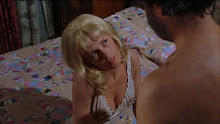







No comments:
Post a Comment